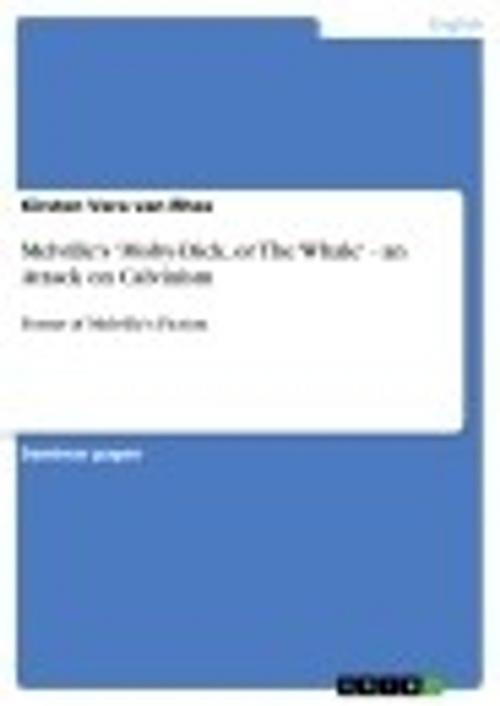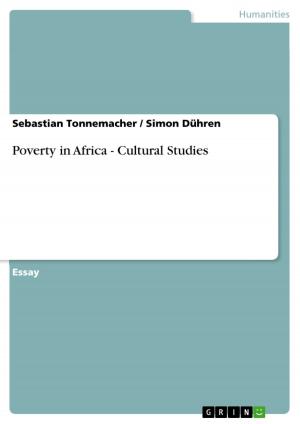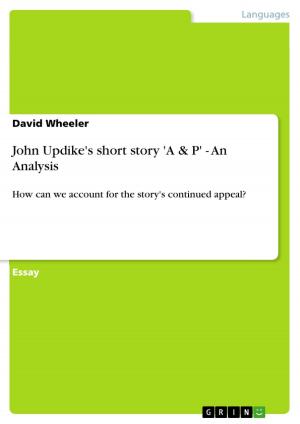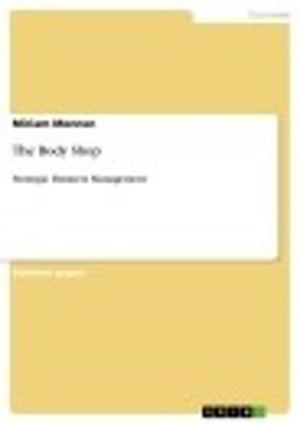Melville's 'Moby-Dick, or The Whale' - an Attack on Calvinism
Forms of Melville's Fiction
Nonfiction, Entertainment, Drama, Anthologies| Author: | Kirsten Vera van Rhee | ISBN: | 9783640983698 |
| Publisher: | GRIN Publishing | Publication: | August 15, 2011 |
| Imprint: | GRIN Publishing | Language: | English |
| Author: | Kirsten Vera van Rhee |
| ISBN: | 9783640983698 |
| Publisher: | GRIN Publishing |
| Publication: | August 15, 2011 |
| Imprint: | GRIN Publishing |
| Language: | English |
Seminar paper from the year 1994 in the subject American Studies - Literature, grade: 2,0, Johannes Gutenberg University Mainz (Englische Philologie), course: The Forms of Melville's Fiction, language: English, abstract: 1. Introduction The publication of Melville's Moby-Dick or, The Whale in 1851 caused a vast range of attitudes toward the book, approaching the novel in various ways. Among those, central motives of creation and quest played an important role in interpreting the author's masterpiece as a work that sought to reach new fundamental religious insights by challenging the Calvinist tradition of Melville's time. This paper is an attempt to show how far Melville's Moby-Dick succeeded in attacking the Calvinist principles of a theocratic and evil view of the world, constructing a literary scene of scepticism and bigotry that crosses the normal boundaries in its quest for what is beyond the universal system.
Seminar paper from the year 1994 in the subject American Studies - Literature, grade: 2,0, Johannes Gutenberg University Mainz (Englische Philologie), course: The Forms of Melville's Fiction, language: English, abstract: 1. Introduction The publication of Melville's Moby-Dick or, The Whale in 1851 caused a vast range of attitudes toward the book, approaching the novel in various ways. Among those, central motives of creation and quest played an important role in interpreting the author's masterpiece as a work that sought to reach new fundamental religious insights by challenging the Calvinist tradition of Melville's time. This paper is an attempt to show how far Melville's Moby-Dick succeeded in attacking the Calvinist principles of a theocratic and evil view of the world, constructing a literary scene of scepticism and bigotry that crosses the normal boundaries in its quest for what is beyond the universal system.















